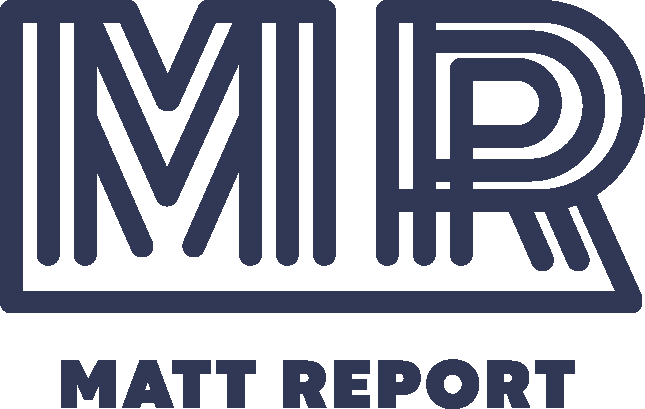WordPress isn’t easy. There, I said it.
I’m willing to bet if you’ve spent any time using the software, you probably feel the same way. Even if you’re a WordPress expert, using the software is not without frustration. As a consultant, what I find even more frustrating, is the difficulty I have in recommending WordPress to a lot of new-to-the-web users or users with strict goals to launch their new business online.
I’m mentoring an accelerator class and 90% of the students need to make their mark on the web. Sounds easy enough, but within a deluge of learning business legalese, accelerator students can’t come up for air to learn the best practices of WordPress too. Quite frankly, they shouldn’t have to.
In the end, there’s simply too many moving parts for the newcomer to comprehend.
Why is WordPress hard?
First, there’s the major hurdle of web hosting:
- What is web hosting?
- Where do I get it?
- Who is the best?
- How much does it cost?
- Who supports me?
Then you have to GET WordPress installed on the web host you finally chose:
- How do I get latest .tar.gz there? (wtf is .tar.gz?)
- 1-Click install or something else?
- What’s this database thing?
- Who is sparky?
- Did I do this right? Can someone help?
So it took you two weeks to finally get the famous five-minute install finished and now you have to build your site!
- What’s a page vs a post?
- What theme is the best?
- What are plugins and why do I need them?
- Hello Dolly? Do I need to active that? (Can we move on from this?)
- I want to change the colors of this theme to match my logo.
- Where do I upload my logo?
- I don’t like how there’s a sidebar on the homepage …
- I thought setting up my website would be easy.
Finally, if you’re lucky, it only took you a month to get your site “live,” and you’re still not 100% sure how the hell you did it all. Pray no one asks you how you made those two columns on the homepage either.
Two ladies want to start a honey company
Here’s a quick story about two lovely ladies looking to start a honey company.
Entrepreneurs at heart, they’ve caught the bug (ha!), to kickstart their next venture. Two well-educated, smart, competent individuals that work with bees to create and bottle honey. The process and science behind it is astonishing. Their product can cure colds, calm allergies and make your tea taste even better — a product that improves human life! Amazing. I mean, I won’t even go within five yards of a bumblebee when I’m cutting the grass, let alone build them a colony to harvest their honey.
Even with all of the knowledge and can-do attitude it takes to launch a company, they’re lost when it comes to starting a website. Never mind a WordPress website. I recently spoke to them about the importance of “owning” online presence:
• The only platform you can control.
• Build an audience.
• Publish your story.
• Create measurable actions for your business.
Ponder this for a moment: In the midst of formalizing a legal company, finding product/market fit, and prepping to ready the hives + strategy for the spring — they need to launch their new website. This, amongst the seemingly never-ending to-do list of tasks. It’s Overwhelming.
I left recommending Squarespace to them. Not a good feeling for me.
How do we make WordPress easier?
I don’t want to (attempt to) provide a solution in this case, but to present the question and gather feedback from folks pondering this same situation. What would you do to make WordPress easier?
I’m a huge advocate for using WordPress, but I also get paid to build web solutions and support commercial WordPress products. I feel it’s the onus of the private market to aide in shaping the adoption of WordPress to new users, not just community contributors.
My argument is that as “consultants” and “WordPress experts” we need to do a better job at onboarding WordPress to our clients. Commercial product creators need to accept the same challenge and make software and the onboarding experience easier if the context calls for it. In the latter case, pay more attention to core WordPress user experiences of the software and not forking that on the unassuming user.
WordPress has a branding problem
this is the most defining discussion to come along in a while, which will shape what WordPress is for the next decade.
Last monkey wrench for the day: What is WordPress?
• An open source blogging platform
• A content management system
• Website builder
• E-commerce platform
• An application framework
• WordPress.com?
• The web’s operating system?
Before we define it, I don’t think we can fix a branding problem without knowing who we are and what we do. For example:
There’s a fast and furious debate going on about WordPress’ up-and-coming REST API, and whether or not it’s making it to core anytime soon.
… hold up … let’s break that down for the layperson: REST API? Core? What?
These discussions are for the 1% of the 1%, but they send ripple effects through the future timeline of our beloved software. In fact, I’d argue this is the most defining discussion to come along in a while, which will shape what WordPress is for the next decade. If you’re someone that doesn’t live and breathe WordPress like I do, why do you care? You probably don’t and quite frankly, why take on this cognitive load?
My honey bee entrepreneurs don’t care — they care that they can make a website easy. A famous Internet entrepreneur doesn’t care, so long as she can build an e-mail list. The Amazon drop ship guy just wants great SEO and a place to sell his stock. While we quibble about endpoints, people just want easy-to-use software they can depend on.
Unless, of course, we’re not building for them anymore?



Leave a Reply